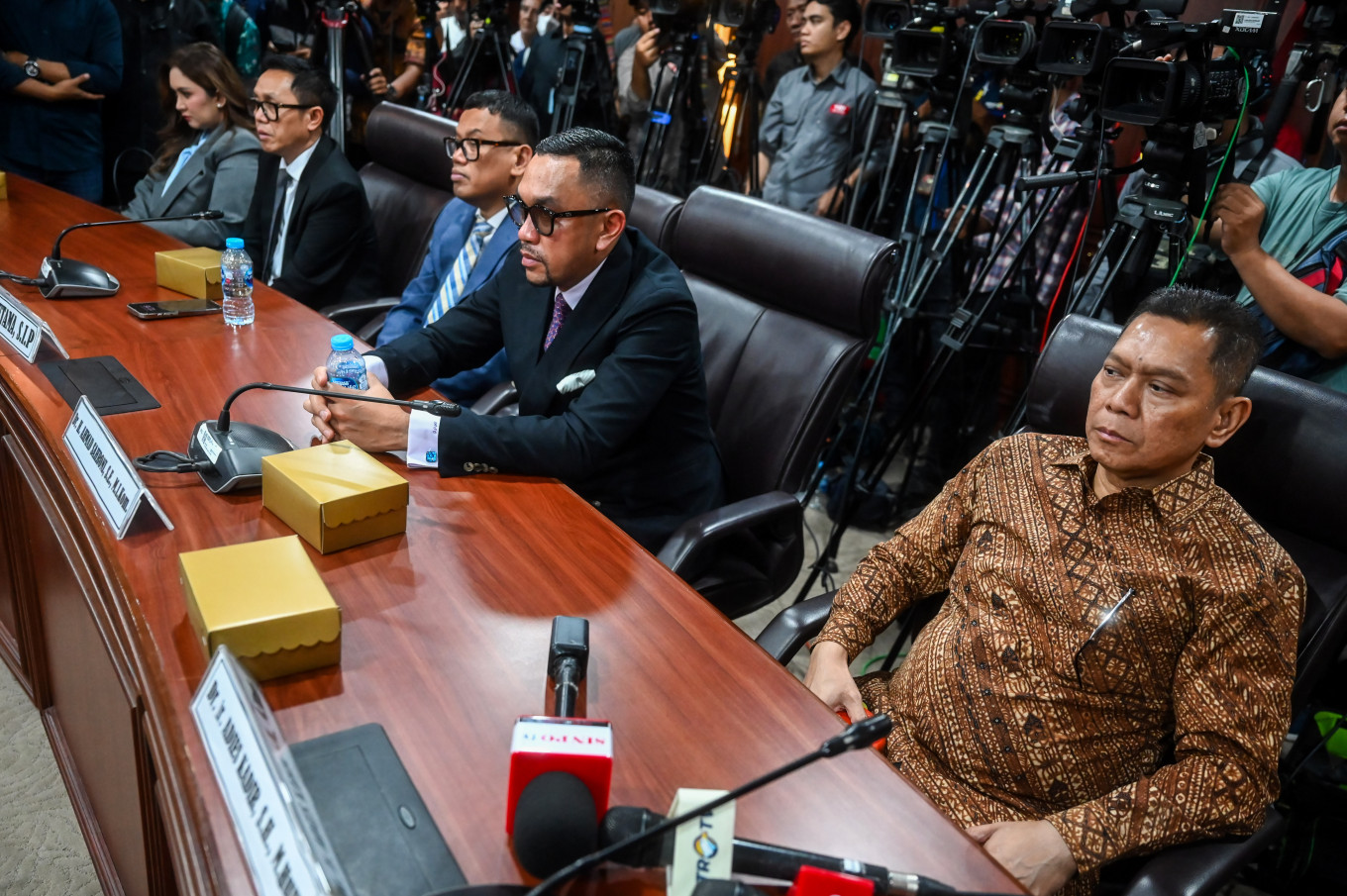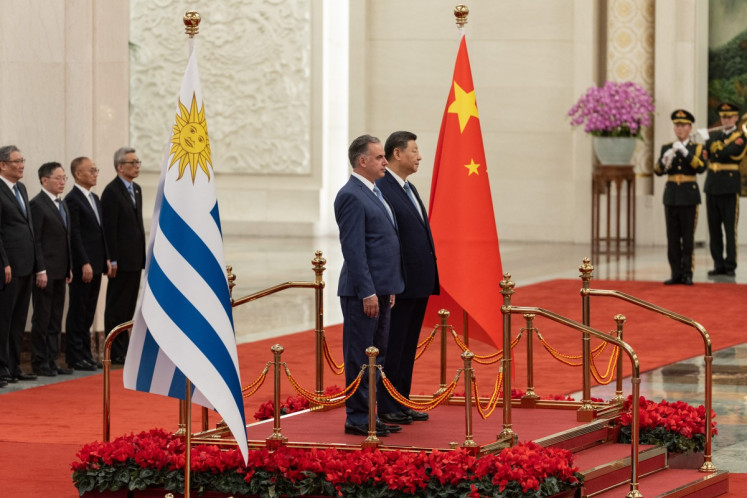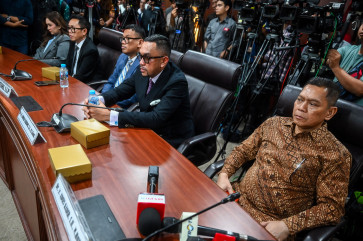Popular Reads
Top Results
Can't find what you're looking for?
View all search resultsPopular Reads
Top Results
Can't find what you're looking for?
View all search resultsLawmakers’ ethics crisis
The public has reason to demand that law revisions address the underlying problems in candidate recruitment, most notably the absence of transparency standards that regulate this process and party fund management.
Change text size
Gift Premium Articles
to Anyone
 Reinstated and rebuked: Suspended lawmakers (from right) Adies Kadir, Ahmad Sahroni, Surya “Uya Kuya” Utama, Eko Hendro Purnomo and Nafa Urbach attend a verdict hearing on Nov. 5 at the House of Representatives ethics committee in the Senayan Legislative Complex in Central Jakarta. (Antara/Rivan Awal Lingga)
Reinstated and rebuked: Suspended lawmakers (from right) Adies Kadir, Ahmad Sahroni, Surya “Uya Kuya” Utama, Eko Hendro Purnomo and Nafa Urbach attend a verdict hearing on Nov. 5 at the House of Representatives ethics committee in the Senayan Legislative Complex in Central Jakarta. (Antara/Rivan Awal Lingga)
L
ast week, the House of Representatives ethics committee delivered its decision on five lawmakers whose alleged arrogance drew public ire in late August, when protesters rallied against lawmaker perks, economic inequality and police brutality.
Three of them, including celebrities-turned-politicians, were found guilty of violating the ethics code over their viral comments and conduct in the lead-up to the demonstrations; the remaining two were cleared of inappropriate behavior. Their cases centered around tone-deaf remarks regarding their perks or directed at protestors who criticized the House, and a celebratory dance at the legislative complex, which went viral.
On the surface, the issue looks trivial. But it raised legitimate questions about the quality of our lawmakers and the lawmaking process, as well as how political parties vet and recruit their legislators, who are meant to serve the public. Regardless of the reasons, these incidents are also indicative of the political parties' inability to develop meritocracy in the regeneration of their members.
This skepticism is warranted. In past legislative elections, there was a trend of political parties picking nominees based on electoral appeal rather than leadership skills or platforms. Vote-buying and pork barrel promises were also not uncommon in past elections. Last year, relatives of sitting lawmakers, political leaders and regional heads, along with celebrities and former corruption convicts, vied for seats in national and local legislatures, regardless of their competence - many of them got elected.
Lawmakers have been criticized not only for producing fewer laws than expected, but also for rushing deliberations and skirting public participation. The result is legislation that serves the elite rather than the public.
The legislature and political parties consistently rank as the least trusted of 11 state institutions in opinion polls from Indikator Politik Indonesia since September of last year. The latest survey in October, which was conducted after the widespread demonstrations, for example, showed that confidence in the House dropped from 69 percent in January to 53 percent. Trust in political parties fared a little better, with a 2-percentage-point decline from 62 percent in January to 60 percent in October.
The time is ripe for meaningful political reform.


















